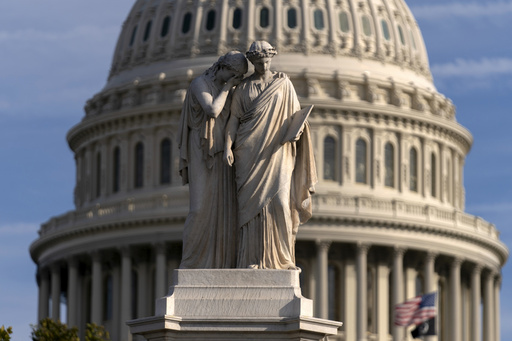
WASHINGTON — Next week, the House is anticipated to attempt the passage of a bill concerning Social Security, aimed at safeguarding benefits for workers who are also entitled to other pension plans. This comes despite unexpected efforts from the hardline leaders of the Freedom Caucus to obstruct its progress.
This situation marks a quick pivot to revive what was previously a bipartisan initiative to advance the legislation during this transitional period following the election within Congress.
**What is the Bill About?**
The proposed legislation seeks to remove the “government pensions offset,” which has been gaining traction among House members, receiving support from an impressive 300 lawmakers, including House Speaker Mike Johnson. The summary indicates that this offset reduces Social Security benefits for spouses, widows, and widowers who also receive their own government pensions. By repealing this mandate, the bill aims to restore complete Social Security benefits.
**How Did the Bill Make Progress?**
To advance the legislation, its sponsors, Republican Rep. Garrett Graves from Louisiana and Democratic Rep. Abigail Spanberger from Virginia, utilized a seldom-used mechanism known as a discharge petition. They successfully gathered the required 218 signatures from House members to unseat the bill from committee, thereby allowing it to be brought to the floor for a vote.
This strategic move is often seen as a challenge to House leadership, particularly the Speaker and the majority leader who manage the legislative schedule. However, both Spanberger and Graves, who have opted not to run for reelection, had little to lose in this endeavor, especially since Johnson had endorsed the bill prior to his promotion to Speaker.
**How Were Conservative Efforts to Block It?**
While the rest of Congress was back in their home states for Election Day, two key figures from the conservative House Freedom Caucus intervened. Rep. Andy Harris from Maryland, the current chairman, and former chairman Rep. Bob Good from Virginia, used a regular pro forma session of the House to quickly table a portion of the legislation. The Freedom Caucus typically opposes new spending, and the nonpartisan Congressional Budget Office projected that the bill could increase the federal deficit by an additional $196 billion over the next decade. Graves argued that this figure represents the benefits that people are missing by not reinstating full Social Security benefits.
**What Lies Ahead?**
Although conservatives have delayed part of the process, the core of the legislation remains unscathed. The bill is expected to advance and face a House vote in the coming week. However, the road to passage is now more challenging, requiring a supermajority rather than the simple majority that was initially anticipated before the Freedom Caucus interference.
**Who Would Gain From This Legislation?**
The proposal states that upon approval, it would abolish the provisions that diminish Social Security benefits for individuals who obtain other benefits, such as pensions from state or local governments. Additionally, it would remove the “windfall elimination provision,” which in certain cases reduces Social Security benefits for individuals receiving a pension or disability benefit from employers that have not withheld Social Security taxes. Should the House approve the measure, it remains uncertain whether it has sufficient support to pass in the Senate. Nonetheless, the considerable backing in the House suggests potential widespread approval. If successfully enacted, the changes would take effect for benefits payable after December 2023.
